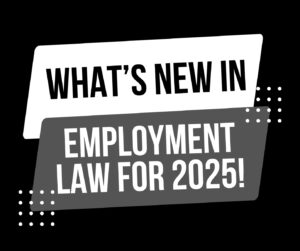Have you participated in or considered early mediation? If so, what was your experience?
As a mediator, I typically see parties coming to mediation as they get closer to trial and after substantial discovery has been completed. At this stage, they typically have a clear understanding of their case’s strengths and weaknesses, as well as its potential value.
However, I’ve also seen plenty of cases where parties opt for mediation much earlier in the process, sometimes even before a lawsuit is filed. So, why mediate early? What are the advantages to doing so, and what are drawbacks?
One Advantage of Early Mediation: Settle before positions harden
Early in a case, parties can be more flexible in their views. As time passes, each side becomes more familiar with their strengths and weaknesses, and they may start to view their case with less flexibility because they think they know it so well. Positions often harden, making it less likely for each side to make the concessions necessary for a successful mediation. Timing can be essential, and early mediation can capitalize on this initial flexibility.
Another Advantage of Early Mediation: Lower emotional investment
Litigation, especially in employment cases involving wrongful termination or harassment, can be emotionally charged. The longer a case goes on, the more emotionally invested parties become. Early mediation may be easier when emotions aren’t running as high.
An Important Advantage of Early Mediation: Minimize attorneys’ fees
The earlier a case is resolved, the lower the legal costs. This is particularly important in cases where attorneys’ fees are recoverable by the prevailing party. The longer the case goes on, the higher the settlement must be to get the attorneys paid. On some cases, lower fees can make settlement more achievable early on.
Another Reason for Early Mediation: Avoid public embarrassment
For high-profile cases or those with sensitive or salacious allegations, early mediation—even pre-lawsuit—can be beneficial. Defendants can avoid public shame, while plaintiffs might secure a better settlement before allegations become public.
Disadvantages of Early Mediation: Navigating with Limited information
Early in a case, it’s challenging to assess liability and damages due to lack of discovery and investigation. This uncertainty can make it difficult to determine a fair settlement value.
Another Disadvantage of Early Mediation: Extreme Positions
When little is known about the case, it might be easier for the parties to feel emboldened to take extreme positions. After all, if the lawyer has only heard his/her client’s side of the story, and doesn’t yet know all the various warts, it will be more difficult to gauge a case’s the weaknesses. This can result making extreme or unrealistic demands that would hinder early resolution.
More Challenges with Early Mediation – Hesitancy to make concessions:
Again, when very little is known about a case, it can make it more difficult for each side to make appropriate or reasonable concessions during mediation. After all, the lawyer might be thinking “I don’t want to move too much, as I’m not sure exactly what I’m giving up”, or something to that effect.
Early vs. Late Mediation: No one-size-fits-all approach
After exploring various pros and cons of early mediation, one thing stands out: there’s no universal “right” time to mediate.
Key takeaways:
- One size doesn’t fit all when it comes to mediation
- Each case has unique dynamics
- Personalities involved can significantly impact timing decisions
Sometimes, early mediation can be a strategic masterstroke. In other instances, waiting until the eve of trial proves more effective.
The bottom line? Thoughtful consideration is crucial.
As you approach your next case, I encourage you to carefully weigh both early and late mediation approaches. Consider:
- Case specifics
- Client needs
- Opposing party’s likely receptiveness
- Potential for information gaps
- The role that attorneys’ fees might play
- Non-monetary reasons for an early settlement.
There is no doubt that there are other pros and cons that I might have overlooked. Let me know what I might be missing!











